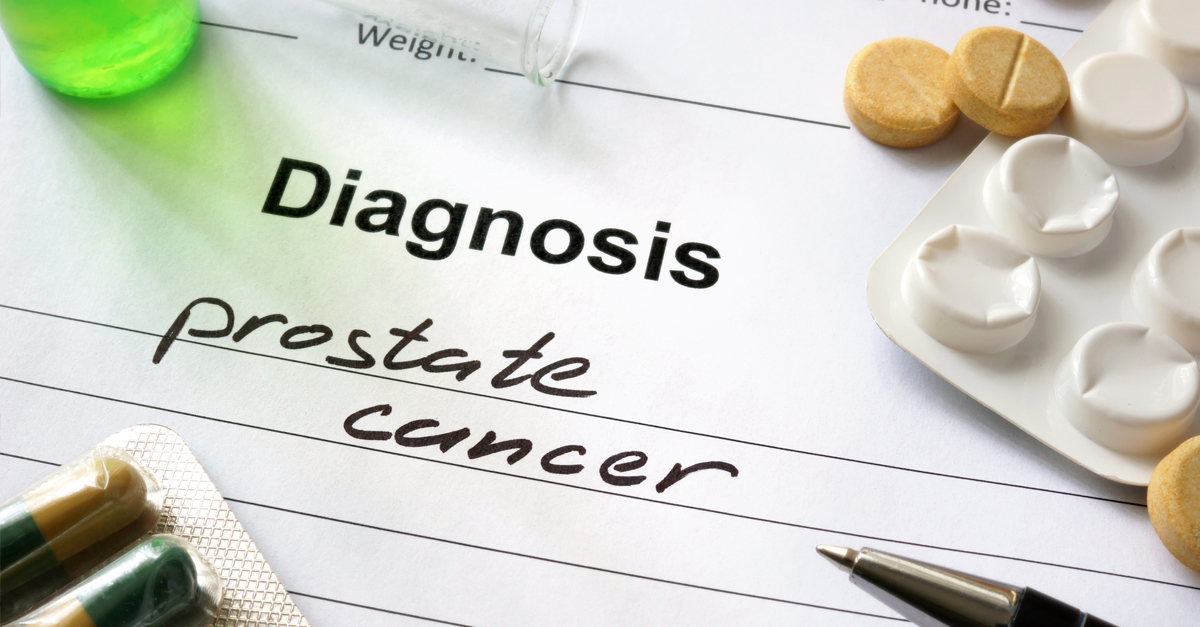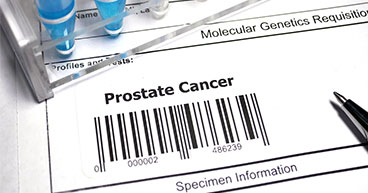
Despite the many advances in cancer treatment, the disease continues to have a disproportionate impact on Black individuals. African Americans have a higher cancer burden than whites, the American Cancer Society says, and they “face greater obstacles to cancer prevention, detection, treatment, and survival.”
When it comes to prostate cancer, the statistics are staggering. Consider:
- Prostate cancer is the most common cancer in African-American men, accounting for 37 percent of all cases, compared to 29 percent of cancer cases for all men.
- From 2014 through 2018, African-American men were diagnosed with prostate cancer 73 percent more often than white men.
- African-American men are more than twice as likely to die from prostate cancer compared to white men.
Some recent clinical trials, however, showed that Black prostate cancer patients—despite having more advanced disease when enrolling in the trials—responded better to treatments and had better outcomes compared to the white patients enrolled in the trials. The treatments included immunotherapy, molecularly targeted therapy, chemotherapy and radiation therapy.
A critical component for improving outcomes is better shared decision-making between Black men and their primary care doctors. That includes a thorough discussion of the pros and cons of prostate cancer screening, and an understanding of the greater risk the disease poses to men of West African genetic ancestry.
“The misconception that all prostate cancers are slow and you will ‘die with it and not from it’ should be dispelled,” says Scott Shelfo, MD, Medical Director of Urology at City of Hope® Cancer Center Atlanta. “While many prostate cancers we find are slow growing, a good portion are not and are high-grade aggressive cancers that may shorten or take a man’s life.”
In this article, we will examine:
- Why is prostate cancer so common in Black males?
- Prostate cancer early detection
- Future testing for prostate cancer
If you are at high risk for prostate cancer or have already been diagnosed and want a second opinion, call us or chat online with a member of our team.
Why is prostate cancer so common in Black males?
Some of the key risk factors associated with prostate cancer are listed below.
Family history: Men who have relatives with a history of certain cancers face a greater risk of developing aggressive prostate cancer.
Ethnicity: African-American men are at higher risk of the disease than white men.
Age: Older men are more at risk than younger men.
Other factors: Medical conditions such as obesity, or lifestyle conditions—such as having a poor diet, smoking, or drinking alcohol—may also play a role.
While scientists have not determined conclusively the reason for the higher rates of prostate cancer in Black men, there’s growing evidence that social and economic factors may be significant. One of the latest studies, released in September by the Center for Cancer Research at the National Cancer Institute (NCI), showed that “neighborhood environments may influence the association of genetic ancestry with prostate cancer risk.”
According to a National Institutes of Health report on the study: “The researchers posited that the increased ancestry-related risk in disadvantaged neighborhoods may be due to chronic stress —such as from racial profiling, housing discrimination, and exposure to violence—which can affect the immune system and cause high levels of inflammation, in turn promoting tumor growth.”
The NCI study, which appeared in JAMA Network, found the situation to be different for Black men living in better socio-economic conditions. Its data showed that Black men in areas that did not experience neighborhood deprivation were not more likely than white men to be diagnosed with prostate cancer.
“This case-control study of men with West African and European ancestry found that West African genetic ancestry was associated with increased odds of prostate cancer among males who resided in neighborhoods with high deprivation but lower odds in more affluent neighborhoods,” the study’s authors reported. “Thus, neighborhood environments may play a critical role in defining how genetic ancestry modulates prostate cancer risk.”
According to the NCI, there are many reasons why socioeconomics may be a contributing factor in cancer cases. Regarding individuals with lower incomes from disadvantaged neighborhoods, they may:
- Lack health insurance, may not be health literate, may have to travel longer distances to receive health care, and may be less likely to be treated according to cancer screening guidelines
- Be more likely to be exposed to unclean water and toxic, cancer-causing substances
- Lack access to healthy foods, which contributes to poor diets and obesity, and they may not get adequate physical activity, all risk factors for cancer
- Face racism or unconscious bias from health care providers; they may have a distrust of the health care system; they may be under chronic stress, or even have a fatalistic attitude toward cancer
All these factors either increase the risk of cancer or work against its early detection.
Prostate cancer early detection
Researchers have determined that the screening recommendations that have been promulgated for prostate cancer in general may not adequately address the situation of Black men, who may be developing cancer at an earlier age than white men.
“African Americans do and should have different screening recommendations, where screening begins at age 40 rather than age 55 for a white man without a family history of the disease,” Dr. Shelfo says.
The Prostate Cancer Foundation this year recommended that Black men—beginning around age 40-45—have an initial prostate-specific antigen (PSA) test and continue with regular screenings until age 70. The test measures PSA in the blood, with higher levels being a potential indicator of prostate cancer.
The foundation also recommended that Black men and their primary care physicians use shared decision-making about whether to test for the disease, discussing the pros and cons of testing with a full understanding of the greater risk Black men face for developing the disease.
More work is needed to understand how well shared decision-making is being done. Studies have found that African-American men diagnosed with early-stage prostate cancer are less likely than white men to receive any type of treatment for the cancer, even though they are at greater risk for developing aggressive prostate cancer.
Recommended treatments vary depending on the type of prostate cancer, its stage and the potential that the cancer will spread. Less serious cases may involve active surveillance (monitoring the early stages of the disease for signs of growth), while other treatments include hormone therapy, surgery, chemotherapy, radiation therapy, immunotherapy or some combination of therapies.
Future testing for prostate cancer
One concern about the PSA test is that there are other reasons why a man may have high PSA levels that are not cancer, so using it as an indicator may simply increase worry and lead to unnecessary tests, including possibly a surgical biopsy. However, while reducing the amount of prostate cancer screenings may lower overdiagnosis of the disease, it may also leave aggressive cases of the disease undetected.
At City of Hope, scientists are investigating new tests that may better predict prostate cancer risks. A City of Hope study released in August 2023 examined potential connections between diabetes and prostate cancer. Since men with diabetes are at a higher risk of developing prostate cancer, researchers, thinking there may be biological associations, studied four metabolism-related biomarkers that measure how well a person manages their diabetes.
“We have identified genetic and molecular changes that can be developed into a tool to predict which Black men are at the highest risk of developing metastatic prostate cancer,” says Sarah Shuck, Ph.D., principal investigator of the trial. She is an assistant professor in the Department of Diabetes & Cancer Metabolism within the Arthur Riggs Diabetes & Metabolism Institute at City of Hope.
“This test would give doctors the ability to more accurately predict patients’ prognoses and equip scientists with more data as they work to design therapies that prevent prostate cancer from developing in the first place,” she says. “We hope that our findings can become part of a comprehensive clinical panel that can be used to predict the risk of deadly prostate cancer.”
If you are at high risk for prostate cancer or have already been diagnosed and want a second opinion, call us or chat online with a member of our team.



